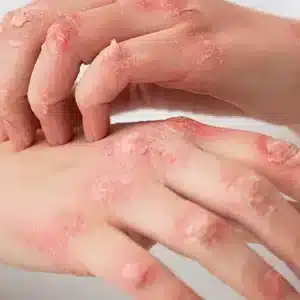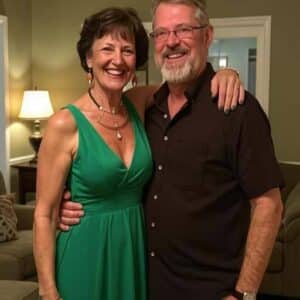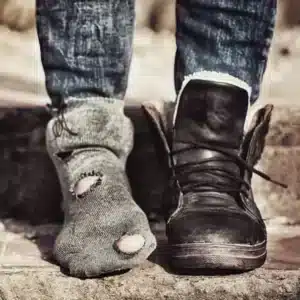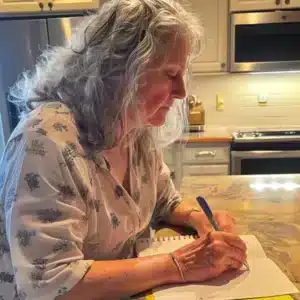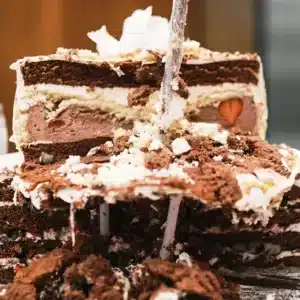We came home from the park to find our lives scattered across the porch: toys, clothes, even my prenatal vitamins. For a moment I couldn’t breathe. The sight of Noah’s toy truck lying face down on the step and Alice’s doll tossed carelessly on top of a ripped grocery bag made my chest ache. And then I understood—Linda had locked us out of the house.
I’m Rachel, thirty-four years old, married to Daniel, and mom to two bright, beautiful little kids. Life has never been simple, but I’ve always fought hard to piece together happiness. My anchor through it all was the house my mother left me before she passed away when I was only fourteen. That house carried her warmth, her memory, her love. Dad promised to look after it until I was grown. And he did—until he remarried.
Linda moved in when I was seventeen. She wasn’t cruel at first, just cold, as if the air shifted around her. She began erasing my mother’s presence one object at a time: the photo on the mantel, the vase in the dining room, even the curtains my mother loved. She called me “stuck in the past” and said I’d adjust. I left for college not long after, telling myself starting fresh was easier than fighting.
Years later, married to Daniel with two kids of our own, we were scraping by. Then Daniel lost his job. Bills multiplied overnight, and my chest tightened every time I sat down with the stack of notices. That’s when I thought of the house. My house. The one I inherited. Dad and Linda were still living there. I hated the idea of going back, but we needed a roof over our heads.
Dad welcomed us warmly, but Linda’s face told another story. “Fine,” she said when we arrived, “but this is not a playground.” Her words were sharp as glass. From that day on, she treated my children like intruders. Toys had to be hidden. Cookies were rationed. Crumbs brought her fury. Even juice spilled on the tile earned a tirade. Noah whispered before sitting down, “Is it okay if I sit here, Mom? Or will Grandma be mad?” I wanted to scream, but Dad never saw it. By the time he came home from work, Linda was all honeyed smiles.
I told myself it was temporary. Daniel would find another job, we’d move out, life would settle. Then I discovered I was pregnant again. Daniel smiled for the first time in weeks, his hand warm against my stomach. “It’s everything we wanted,” he said. Dad was thrilled, but Linda barely looked up. “Another? More noise?” Her disdain hung in the air like smoke.
Three days after Dad left on a short business trip, Daniel and I took the kids to the park. We wanted to give them a little joy, some freedom from the tension inside those walls. The day was bright and beautiful. We flew kites, ate sandwiches, and laughed until our cheeks hurt. But when we came home, everything was different.
Suitcases, toys, clothes, even bottles of prenatal vitamins—our lives were dumped outside like trash. My hands shook as I fumbled with the key. It didn’t fit. None of the doors opened. Daniel’s jaw clenched. “She changed the locks.”
The kids clung to me, crying. I called Linda. Her voice was calm, almost smug. “I told you I wouldn’t tolerate chaos. Find somewhere else to live. That house is mine now.”
My voice broke. “It’s not yours. It’s mine. My mother left it to me.”
She laughed. “There’s nothing of your mother left here. It’s all mine.” Then she hung up.
I stood frozen, holding the phone, my kids sobbing against me. In that moment, I felt erased. But I knew one person would understand—my mom’s sister, Aunt Margaret. I called her, voice cracking. “She locked us out. The kids—”
“Stop right there,” Aunt Margaret said, firm and loving. “Bring the kids. Bring Daniel. You’re coming here. Now.”
She stood barefoot on her porch waiting for us, arms open, and when she held me, I broke down. “You’re safe,” she whispered. “Your mother would never have allowed this.”
Three days later, Dad called, confused. “Linda said you left on your own, that you found a new place.” My stomach turned. I told him everything. There was silence on the line, then his voice, low and trembling with rage: “Don’t move a thing. I’m coming.”
That night, he showed up at Aunt Margaret’s. His hug was tighter than any he’d given me in years. “That house is yours, Rachel. It always has been.”
He went back, confronted Linda, and told her the truth she couldn’t escape: “You don’t throw my daughter and grandkids out. You don’t erase my wife’s memory. And you don’t call that house yours.”
Linda left that very night with her suitcase and never returned.
It didn’t solve everything instantly, but it gave us air to breathe. Within a week, Daniel found a new job. A good one. When he read the offer letter, his smile was so wide it made me cry. We moved into a small apartment, humble but ours. A few months later, I gave birth to a healthy baby boy, Ian. Dad was in the delivery room. When he held his grandson, his eyes filled with tears. “Your mother would have spoiled him rotten,” he said.
Now, Dad and I are slowly restoring the house together. Every room, every garden bed, every detail. Piece by piece, we’re bringing my mother’s presence back.
Linda never called. She never apologized. And I don’t need her to. I have Daniel, my children, my dad, and my aunt. That’s more than enough. That’s family. That’s home.
